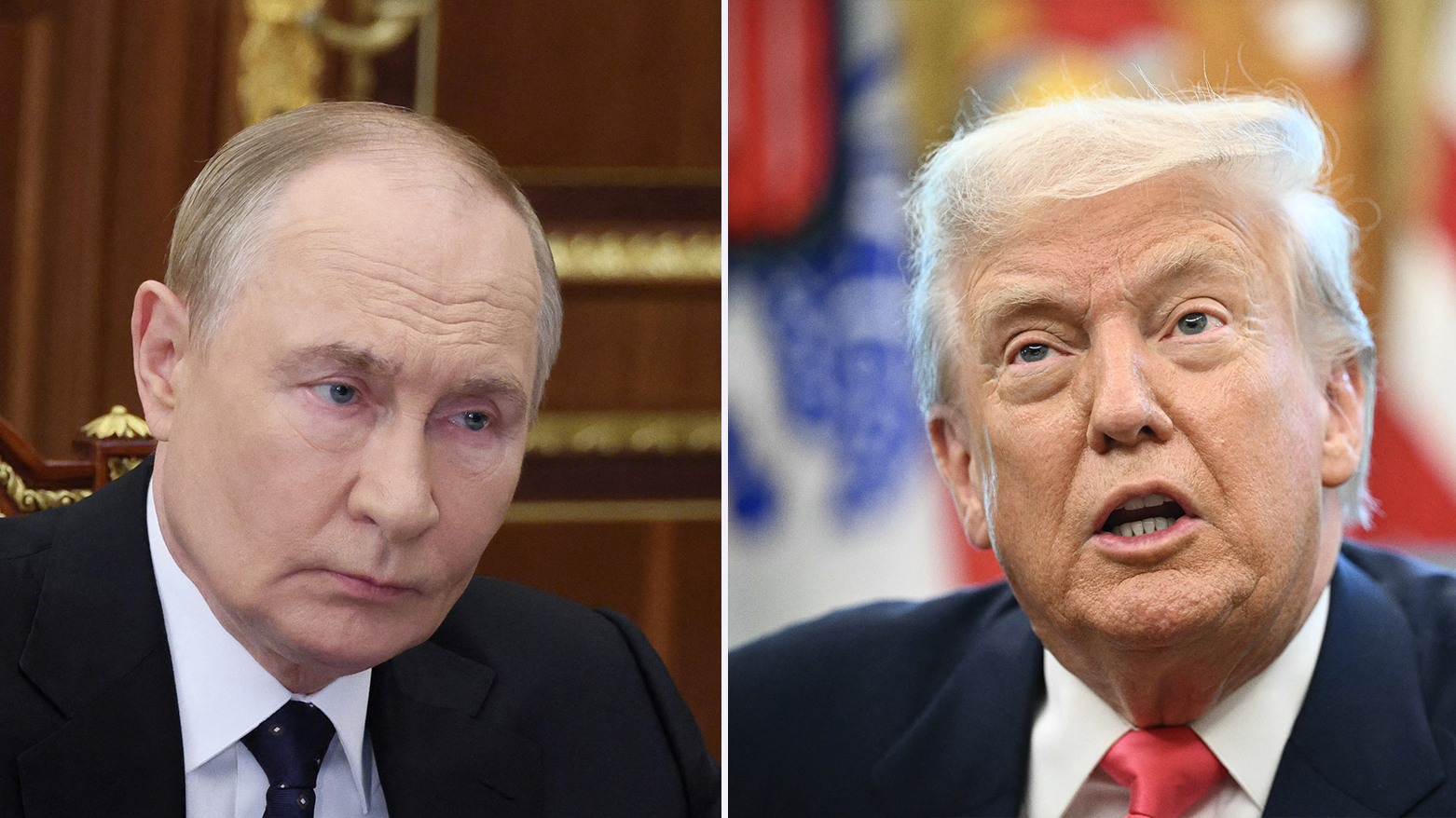Alaska Summit: Putin Ready to Negotiate on Nukes, Commends U.S. Peace Push
Russian President Putin praised President Trump’s peace efforts and signaled a potential nuclear deal ahead of their Alaska summit, as a key arms treaty nears expiration. Ukrainian President Zelenskyy remains skeptical, rallying international support.

ERBIL (Kurdistan 24) – In a significant development ahead of a high-stakes and high-risk summit with U.S. President Donald Trump in Alaska, Russian President Vladimir Putin has praised what he called Washington's "sincere efforts" to end the war in Ukraine and signaled a potential readiness to negotiate a new nuclear arms agreement.
The remarks come as the two leaders prepare for their first meeting since 2021, a summit that could prove decisive for the future of Ukraine as a critical strategic weapons treaty between the two powers is set to expire in February.
According to a report from Fox News, President Putin suggested on Thursday that he could be ready to reach a nuclear deal with the United States.
Speaking on television, he commended the U.S. for "making, in my opinion, quite energetic and sincere efforts to stop the hostilities, stop the crisis and reach agreements that are of interest to all parties involved in this conflict," as cited by Reuters in the Fox News report.
The Russian leader, who will be stepping onto Western soil for the first time since ordering the full-scale invasion of Ukraine in February 2022, also reportedly alluded to possible future "agreements in the area of control over strategic offensive weapons," directly addressing the looming deadline for the New Strategic Arms Reduction Treaty (START).
This treaty, which covers the world's two largest nuclear arsenals, currently caps the number of deployed warheads at 1,550 for both Russia and the U.S. and is scheduled to expire in February.
The pre-summit overture follows a period of heightened nuclear tension.
Fox News reported that President Trump recently ordered two nuclear submarines to move closer to Russia after what were described as "highly provocative statements" from a former Russian president. The Kremlin reportedly downplayed the maneuver but issued a warning for all sides to be "very, very careful" about nuclear rhetoric.
Friday’s meeting is scheduled to begin at 11:30 am (1900 GMT) at Elmendorf Air Force Base in Anchorage, the largest U.S. military installation in Alaska and a former Cold War base for surveillance of the Soviet Union.
While Trump extended the invitation at Putin's suggestion, the U.S. president has since been defensive, warning that the meeting could be over within minutes if Putin does not compromise.
Describing the summit as a "feel-out meeting" to test the Russian leader, Trump told reporters at the White House on Thursday, "I am president, and he's not going to mess around with me."
He added, "If it's a bad meeting, it'll end very quickly, and if it's a good meeting, we're going to end up getting peace in the pretty near future," giving the summit a one in four chance of failure. The Kremlin said it expected the leaders to meet alone with interpreters before a working lunch with aides.
The talks represent a crucial moment for President Trump, who has actively pushed for a resolution to the conflict and threatened "very severe consequences" should Putin not agree to a peace deal.
This approach marks a shift for Trump, who faced intense criticism after a 2018 summit where he appeared to accept Putin's denials of Russian interference in the 2016 U.S. election. Despite campaign vows to bring peace within 24 hours, he has more recently acknowledged frustration with Putin’s unwillingness to compromise.
He has also stated his intention to consult with European allies and the Ukrainian president after the summit, suggesting any final agreement could come in a three-way meeting to "divvy up" territory.
However, the view from Kyiv remains deeply skeptical. Ukrainian President Volodymyr Zelenskyy, who was not included in the talks and has publicly refused pressure to surrender territory, expressed doubt about Russia's intentions. As reported by Fox News, he wrote on the social media platform X that he saw "no sign that the Russians are preparing to end the war."
Zelenskyy also described the Alaska summit as a "personal victory" for Putin, arguing that with the trip, the Russian leader "is coming out of isolation." The summit marks a sharp shift from the approach of Western European leaders and the previous U.S. administration, who had vowed no discussion with Russia on Ukraine's future unless Ukraine was at the table.
In the lead-up to the summit, Zelenskyy engaged in a diplomatic effort to bolster support, meeting with U.K. Prime Minister Keir Starmer and German Chancellor Friedrich Merz.
The summit carries complex legal and diplomatic dimensions. Putin faces an arrest warrant from the International Criminal Court, which has sharply curtailed his travel.
However, the United States is not a party to the tribunal, and the U.S. Treasury Department temporarily eased sanctions on top Russian officials to allow them to travel and use bank cards in Alaska. Daniel Fried, a former U.S. diplomat, commented that while Trump has the means to pressure Putin, the Russian leader "is a master of the new shiny object which turns out to be meaningless."
